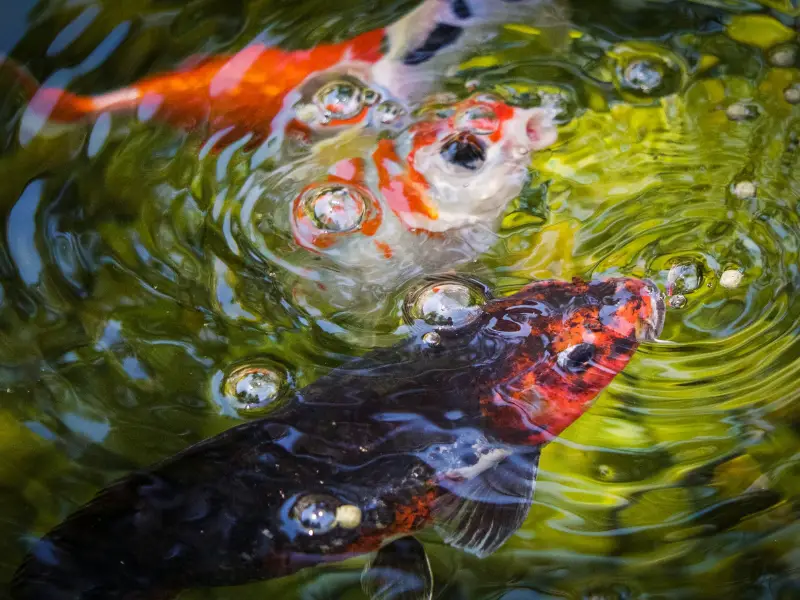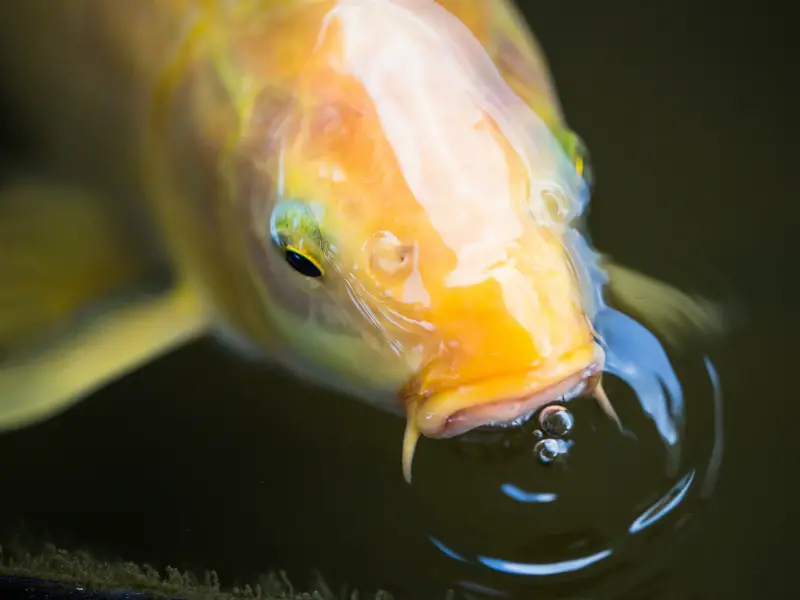Fish are fascinating creatures that come in a wide range of sizes, colors, and shapes. They are also incredibly diverse in their ability to adapt to different environments. However, one question that many fish owners may have is how long their fish can survive without an air pump or filter. While there is no simple answer to this question, there are several factors that can affect the survival of fish in these conditions.
Firstly, it is important to understand that fish require oxygen to survive. Without a source of oxygen, fish will quickly suffocate and die. While an air pump can help to increase oxygen levels in the water, it is not always necessary for fish survival. In fact, some species of fish are able to survive in low-oxygen environments for extended periods of time, while others may struggle to survive even in well-oxygenated water.
Another factor that can affect the survival of fish without an air pump or filter is the size of the aquarium or fish tank. A larger tank will generally have a greater volume of water, which can help to dilute waste products and maintain a more stable environment. Smaller tanks, on the other hand, maybe more prone to fluctuations in water quality and oxygen levels, which can make it more difficult for fish to survive without an air pump or filter.
How Fish Breathe Without an Air Pump or Filter
Fish are able to breathe without an air pump or filter because they have a unique respiratory system that allows them to extract oxygen from water. Unlike humans, who breathe air through their lungs, fish breathe through their gills.
Gills are specialized organs that are responsible for extracting oxygen from water and removing carbon dioxide. They are made up of thin filaments that are covered in tiny blood vessels called capillaries. As water flows over the gills, oxygen is extracted from the water and absorbed into the bloodstream. At the same time, carbon dioxide is released from the bloodstream and expelled out of the fish’s body.
In order for fish to breathe effectively, they require a constant flow of water over their gills. This can be achieved through natural water movement, such as currents in a river or ocean, or through aeration created by waterfalls or fountains in an aquarium.
While an air pump or filter can be beneficial for maintaining water quality and oxygen levels in an aquarium, they are not always necessary for the survival of fish. As long as the water is well-oxygenated and free of harmful toxins, fish can thrive without the aid of artificial equipment. However, it is important to monitor water quality regularly and make adjustments as needed to ensure the health and well-being of your fish.
Factors Affecting Fish Survival Without Air Pump or Filter

Water Temperature
Water temperature plays a crucial role in the survival of fish without an air pump or filter. If the water temperature is too high, the oxygen level in the water decreases, which can lead to the death of fish. On the other hand, if the water temperature is too low, the metabolism of the fish slows down, which can also lead to death. The ideal water temperature for most fish species is between 72-82°F (22-28°C).
Fish Species
Different fish species have different requirements for oxygen and water quality. Some fish species are more tolerant of low oxygen levels and poor water quality than others. For example, goldfish and koi can survive in low-oxygen environments for longer periods than most other fish species. However, this does not mean that they can survive indefinitely without an air pump or filter.
Fish Size
The size of the fish also affects its survival without an air pump or filter. Larger fish require more oxygen than smaller fish, and they produce more waste. Therefore, larger fish need a higher level of oxygen and cleaner water to survive without an air pump or filter.
Water Quality
Water quality is another crucial factor that affects the survival of fish without an air pump or filter. Poor water quality can lead to the accumulation of harmful toxins, which can be fatal to fish. It is essential to maintain proper water quality by regularly testing the water and performing water changes as necessary.
In summary, the survival of fish without an air pump or filter depends on several factors, including water temperature, fish species, fish size, and water quality. It is crucial to provide the optimal conditions for fish to survive without an air pump or filter.
Signs of Oxygen Deprivation in Fish

Fish require oxygen to survive, and when they don’t get enough of it, they can suffer from oxygen deprivation. Signs of oxygen deprivation in fish include:
- Gasping at the surface of the water: Fish that are not getting enough oxygen may swim to the surface of the water and gasp for air.
- Lethargy: Fish that are not getting enough oxygen may become lethargic and inactive.
- Loss of appetite: Fish that are not getting enough oxygen may lose their appetite and stop eating.
- Pale gills: The gills of fish that are not getting enough oxygen may become pale or even white.
- Erratic swimming: Fish that are not getting enough oxygen may swim erratically or even float upside down.
- Red or brown gills: In some cases, the gills of fish that are not getting enough oxygen may turn red or brown.
If you notice any of these signs in your fish, it’s important to take action to improve their oxygen levels. This may involve adding an air pump or filter to the tank, increasing the water flow, or simply providing more oxygen-rich water changes. By addressing the issue promptly, you can help ensure that your fish stay healthy and happy for years to come.
Mitigating Risks and Ensuring Fish Health
Regular Water Changes
One of the most important things to do when keeping fish without an air pump or filter is to perform regular water changes. Without an air pump or filter, the water quality can quickly deteriorate, which can lead to health problems for the fish. Regular water changes can help remove waste and other harmful substances from the water, which can help keep the fish healthy.
Planting Aquatic Plants
Another way to help keep fish healthy without an air pump or filter is to plant aquatic plants in the aquarium. Aquatic plants can help absorb excess nutrients in the water, which can help prevent the growth of harmful bacteria and algae. Additionally, aquatic plants can provide a natural source of oxygen for the fish.
Using Air Stones
While not necessary, using air stones can also help keep fish healthy in an aquarium without an air pump or filter. Air stones can help increase the oxygen levels in the water, which can be especially important if the aquarium is heavily stocked with fish. Additionally, air stones can help create water movement, which can help prevent stagnant areas in the aquarium.
In conclusion, while it is possible to keep fish without an air pump or filter, it is important to take steps to mitigate risks and ensure fish health. Regular water changes, planting aquatic plants, and using air stones are all ways to help keep fish healthy in an aquarium without an air pump or filter.
Conclusion
In conclusion, fish can survive without an air pump or filter, but the conditions must be suitable for them to thrive. Factors such as the size of the tank, the type of fish, and the amount of waste produced can impact the fish’s ability to survive.
It is important to note that while fish can survive without an air pump or filter, it is not recommended for long-term care. The lack of filtration and aeration can lead to poor water quality, which can cause stress and illness in fish.
If you plan on keeping fish without an air pump or filter, it is important to perform regular water changes and monitor water parameters such as pH, ammonia, and nitrite levels. In addition, choosing hardy and low-maintenance fish species can increase the likelihood of success.
Overall, while it is possible for fish to live without an air pump or filter, it is not the ideal situation for their health and well-being. It is recommended to provide proper filtration and aeration to ensure a healthy and thriving aquatic environment for your fish.
Related Articles: